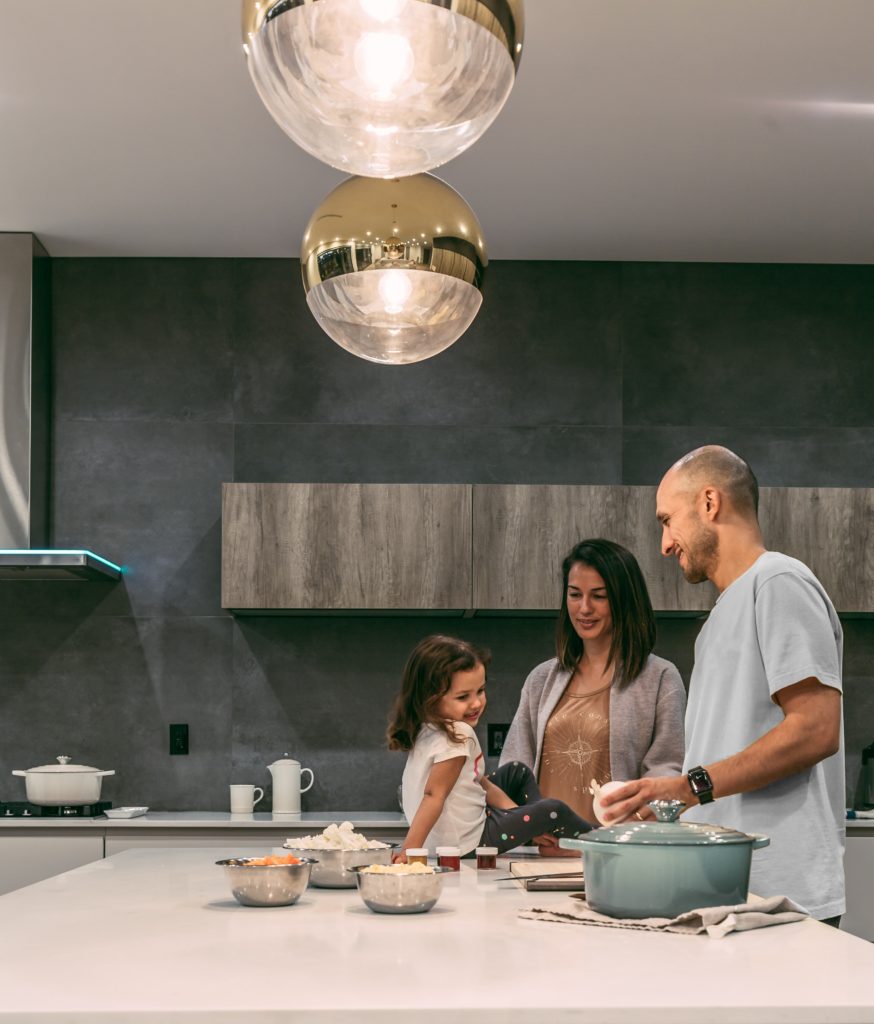
Meditation and mindfulness are not one and the same. After two decades of improvising and then literally writing the book on how improv affects our brains, I now realize that improv thinking can help us retrain our brains and teach us how to practice mindfulness throughout the day.
Improv Thinking
After years of training, improvisers learn to shift their focus from internal to external. Instead of overthinking or being “in their heads,” improvisers acquire an intense outward focus on their fellow players and the details of their improvised scenes as they unfold.
This playful external focus affects how their brains work. One fMRI study showed that improv decreased activity in the dorsolateral prefrontal cortex and increased activity in the medial prefrontal cortex. Stated simply, the dorsolateral prefrontal cortex is linked with our inner critic and the medial prefrontal cortex is linked with creativity.
Now, there’s no reason we can’t try to shift our focus throughout our everyday lives and retrain our brains to be more plugged into our environments and less concerned with our internal monologues.
Play Your Way Sane
I’ve transformed improv exercises into everyday games people can play to enjoy a more external focus throughout their days. This external focus, when we’re really in tune with our environments, is a kind of mindfulness.
Mindfulness isn’t just about monitoring our inner-life. It is also about noticing the world around us, without judgment or bias. Just noticing. Being in the world.
Let’s go through a hypothetical day and talk about some times you can choose mindfulness over mindlessness, some times you can play your way sane instead of just going through the motions.
Here's a play by play for how to practice mindfulness throughout the day.
Everyday Games: The Answer for How to Practice Mindfulness Throughout the Day
Waking up: Affirmation Station

Your alarm starts going off. Now at this point, it’s easy to go into autopilot and just mindlessly get ready for work.
Or you can play the everyday game I like to call Affirmation Station. Make a pit stop at the mirror. Really look at yourself. Try not to judge your bedhead, puffiness, or wrinkles. Instead, see the greatness in that mirror. Now tell yourself how awesome you are and magical your day is going to be.
This helps you take a moment to get more mindful about how you’re feeling, and it snaps you out of the autopilot morning routine.
Commuting to Work: Take a Hike

You’re in the car. Maybe stuck in a little traffic. Again, it’s easy to just shut your brain off or the opposite, obsess about all the things you need to do once you get into the office.
Instead, treat your commute like it’s a hike through the mountains. Quiet your mind and focus on what’s going on around you. No judgment. No strong emotions. Just notice the cars, how your fellow drivers are feeling, or the weather.
Just because we’re commuting to work, it doesn’t mean we have to be stressed out or mindless zombies. Pretend you’re on an adventure to be more mindful as you head to the office.
Clocking in at Work: Curious Detective

You arrive at work and have another choice to make. You could keep doing what you always do: mindlessly say “Good morning” to your coworkers. Or you could actually take an interest in them.
Curious Detective is simple. Just pretend you’re a detective. You could be Columbo or Sherlock Holmes. It doesn’t matter to me. What matters is that you take an actual interest in solving the mystery of who your coworkers are, what they care about, how they’re feeling, and what makes them tick.
This way you become more mindful of your colleagues instead of just going through the motions.
Morning Meeting: Yes

Morning meetings can be brutal. Sometimes, we daydream and tune everything out. Sometimes, we care too much, getting upset or angry or even confrontational.
It's time to make another choice. I call this game Yes, and it’s based on improv’s Yes, And exercise. One person has an idea and the next has to literally say “Yes” and repeat what the first person said.
At your morning meeting, it might go like this. Your boss says, “Our numbers are way down this month.” You would say, “Yes, our numbers are way down this month…” And then go from there.
Maybe your coworker says, “Your quarterly report is filled with mistakes.” You would say, “Yes, you think my quarterly report is filled with mistakes…” Now, you don’t have to agree with your coworker, but it’s important to agree with their reality. They think you made a lot of mistakes. Agreeing with their reality is a much less confrontational strategy that makes you more mindful of other people’s thoughts, feelings, and opinions.
Lunch Break: Take the Long-Cut

It’s finally time for lunch. You could wolf down a sandwich at your desk, or you could play an everyday game to recharge your mindfulness reserves.
Take a detour. Get out of the office and take a walk around the block. Don’t go directly to the park or the deli. Take a long way. Breathe deeply. Notice what’s going on around you. Literally stop and smell the roses if you happen to see some.
Back to Work: Breathing not Bantering
Your lunch break is over. You head back to the office and have yet another chance to choose mindfulness.
Instead of mindlessly gossiping by the water cooler, try Breathing not Bantering. To enjoy more mindful conversations with colleagues, take a full breath, in then out, after they say something to you. Slow down the usual chitchat and give yourself a chance to really absorb what they’re telling you before you respond.
And just like that, you’re having a much more mindful afternoon.
Driving Home: Call It Like You Sees It

You’re back in your car, ready to get back home as fast as you can. Instead, use this as another opportunity to be more present in your environment.
The everyday game Call it Like you Sees It is really just an improv exercise. As you’re going home, look at one thing and simply call it whatever it is. If you see a tree, say, “Tree.” See a car? Say “car.”
The act of naming objects helps you slow down and actually see them, instead of just robotically transporting yourself home.
Dinner: Just Ask

It’s dinnertime. You could just gobble your grub and mindlessly say, “Uh huh” over and over to your husband. Or you could ask some questions and actually care about the answers.
Just Ask is an everyday game that asks you to ask. As you enjoy your dinner, ask your wife questions. Interview your kids. Make it more about them than about yourself.
Mindfulness isn’t just about being aware of our own thoughts and emotions. It’s also about being tuned into other people. So, ask questions and really listen to the answers.
Bedtime: Nope, Try Something Else

You did it! It’s finally bedtime. Your mind is racing, thinking about all the things left undone or all the things you have to do tomorrow.
Notice what you’re thinking, and then tell yourself, “Nope, try something else.” Then let another thought drift into your head. Then again, “Nope, try something else.” Keep letting the thoughts drift in and out. Your goal is to let all the anxious thoughts drift away, eventually landing on the quiet repetition of your breath or counting sheep or whatever tranquility helps you soothe yourself to sleep.
Final Thoughts on How to Practice Mindfulness Throughout the Day
Ten minutes of meditation does not a mindful day make. Instead, play some everyday games to flex your mindfulness muscle throughout the day.
Just like improvisers practicing their external focus over years of rehearsals, everyday games can give you numerous opportunities every day to rewire your brain to be more mindful, not just of your own thoughts and feelings but of the people and places all around you. How to practice mindfulness throughout the day doesn't have to be a mystery, and it doesn't have to be boring.
Make it a game. Make it fun. And you make it a habit.
